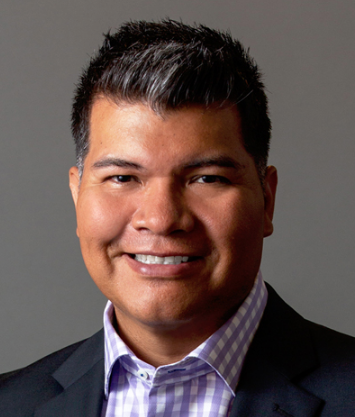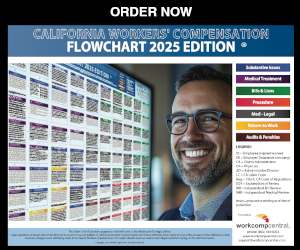Luna: The King Case: Imperceptible Implications for UROs
Thursday, September 27, 2018 | 1
Many minds in the workers’ compensation community have been monopolized by California’s King v. CompPartners Inc. case.

Carlos Luna
On Aug. 23, the State’s Supreme Court issued its ruling on the high-profile dispute: Workers' compensation law provides the exclusive remedy for an employee who alleges injuries caused by a utilization reviewer's denial of medical treatment.
This column is not as much about the legal details of the case as it is about pondering what comes next for the UR process. Are there imperceptible implications that could usher legislative and/or regulatory changes for utilization review organizations (UROs) across the Golden State?
While the ruling is widely perceived as a win for proponents of California’s workers’ compensation system, the visibility of the King case has inspired numerous editorial pieces seemingly critical of the quality of UR. These write-ups undermine the value of medically appropriate UR determinations and their ability to keep injured workers safe from avoidable disability due to iatrogenic conditions.
The details central to the case appear to provide a basis for those who argue that the workers’ compensation system may not be working as Legislature intended. This perception will undoubtedly initiate more dialog among system influencers who are unhappy with today’s UR and independent medical review landscape. Their primary objective will be to unravel the UR and IMR processes.
As certain stakeholder lobbies push to reduce the system’s administrative expenses, service vendors face ongoing pressure to find ways to cut costs for their services that can result in lower quality and less-effective products.
Make no mistake: The UR process at its core is designed for the benefit of injured workers and employers alike — the central figures of work comp’s grand bargain. A high-quality review process ensures that the safety of the worker remains a top priority while paving a path to functional restoration in a timely manner.
This provides the employer assurance that it pays only for treatment that is proven to be efficacious by the scientific evidence and qualified medical professionals in order to facilitate optimal outcomes.
An argument can be made that while the legal questions around exclusive remedy may have been answered by the King case, the jury is still out regarding the ethical component of UR. Nicely summarized by a recent blog by Joe Paduda, UROs must take the time to consider the implications of their decisions on an injured worker’s health. It would greatly benefit the workers’ compensation community if all stakeholders involved in the care and claim continuum were to consider the same. In the end, doing what is right by the injured worker is what matters most.
However, if decisions to award business to UR vendors are primarily price-driven, the risk of cutting corners and potentially rendering the UR process inefficient, and ineffective, becomes very real. UROs have a duty to inform and educate clients, as well as the California workers’ compensation community at large, of the risks that accompany a bargain-bin approach to utilization review.
A bundled approach to managed care can produce efficiencies. It can also provide covering to conceal price gouging and quality defects in an UR product. With this in mind, how does a payer adequately survey for a high-quality UR service?
A thorough review of the URO’s process and verification of the program’s accreditation is the only way to qualify the service. UR is a component in workers’ compensation that inevitably requires a high degree of human intervention and clinical analysis. This is due to the complexities of certain medical scenarios that do not always fall within the guardrails of guidelines or best-practice standards. These reviews take time to reach a well-informed determination that will usher the injured worker to functional recovery and productivity.
Ironically, it is not unheard of for misguided payers to dictate a time limit that their UROs can spend per review, expecting the cost for clinical UR reviews and necessary processing to be restrictively low. This pressures UROs to rush decisions, and in some cases bypass necessary clinical analysis, making a decision without looking at the complete picture.
Limiting the use of clinical resources required to ensure adequate medical care is being administered to the patient, in an effort to maximize savings, is not an effective strategy for cost and risk mitigation. It does quite the opposite. This practice exposes everyone involved to increased damages. There are no shortcuts to quality reviews for improved outcomes.
The King debate now places California’s UR and IMR systems under increased public scrutiny. The question as to whether the workers’ compensation system is working as intended will only become more prominent in the months to come.
As unfortunate as the health implications suffered by the injured worker in this care are, they are not indicative of the positive day-to-day outcomes achieved for injured workers in California due to the UR process. Recently published data by the California Department of Industrial Relations (DIR) and its Division of Workers’ Compensation (DWC) measured that IMR overturned UR denial of treatment just 8.3% of the time in 2017. This affirms that 91.7% UR denials protected injured workers from the potential of extended disability due to inappropriate medical care requests.
Irrespective of the overwhelmingly positive data on appropriate UR decisions, I expect the UR conversation to be a prominent point of discussion come next year’s Legislative session. The additional attention placed on these areas will result in either an improvement in the quality of reviews through increased accountability, or unnecessary hurdles being introduced, making it difficult for UROs to provide necessary protections to injured workers.
Indeed, there will be implications for this segment of the workers’ compensation community that lie beneath the surface of the King case verdict. It will be incumbent upon UROs and their advocates to encourage a paradigm shift respective to the purpose and true value of the UR process among stakeholders in California's workers' compensation system. In doing so, they will afford themselves a seat at the table to influence prospective legislative and regulatory change.
Carlos Luna is vice president of marketing and business development at Risico Total Managed Care. This column is republished with his permission from his Carlos Luna News blog.







Comments